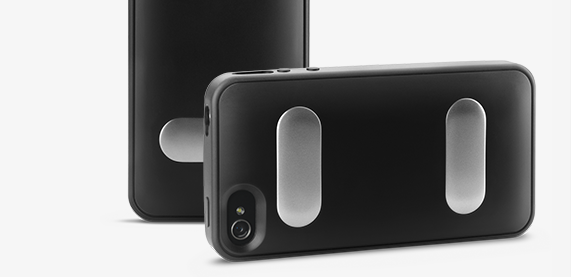While some iPhone users see their smartphones as a figurative life saver, Dr. Eric Topol put Apple's popular smartphone to such use literally on a recent flight from Washington, D.C., to San Diego.
Visit NBCNews.com for breaking news, world news, and news about the economy
As Rock Center with Brian Williams details, Topol used his iPhone, in combination with an AliveCor — an iPhone-mounted sensor capable of delivering clinically accurate electrocardiograms — to measure the vital signs of a passenger experiencing severe chest pains at 30,000 feet.
When the readings indicated that the passenger was, in fact, having a heart attack, Topol recommended an urgent landing. The passenger survived after being rushed to the hospital.
According to Topol, the proliferation of apps that allow patients to measure and monitor their vital signs represents a revolution in the medical world. Devices like the iPhone, he says, will soon be able to pair with ingested or injected sensors: monitoring blood flow, sugar levels, sleep habits, heart rates, and more.
When one of these sensors picks up data of note, it will be able to contact a patient's smartphone, or even a patient's doctor in order to alert the physician and schedule an appointment. Such technology could cut down on inefficient practices such as mass screenings for things like breast cancer, with patients instead monitoring their own hormone and blood chemistry levels with smartphone-paired sensors.
The medical community is moving toward and adopting technologies such as these in fits and starts, encouraged by the utility and portability of devices such as the iPad mini, but occasionally stymied by regulatory concerns. Physicians have by some accounts, been quicker to adopt the iPad for use in their practices than they have the electronic health record systems mandated by the Affordable Care Act.
The other end of the medical future that Topol envisions, though, will be slower to come. While advancements have been made in wireless technologies and sensors, the medical community has been slower to adopt those devices than it has tablets and smartphones.
The pace of improvement in those devices continues to accelerate, though, and it may not be too far in the future when smartphone users won't have to call their doctor for an appointment, because their smartphone will have already done so for them.
 Kevin Bostic
Kevin Bostic




-xl-m.jpg)


-m.jpg)






 Amber Neely
Amber Neely
 William Gallagher
William Gallagher
 Malcolm Owen
Malcolm Owen

 Mike Wuerthele
Mike Wuerthele


 Thomas Sibilly
Thomas Sibilly







45 Comments
I love this! As a paramedic, we use tablets/laptops to complete our call reports. I wish they would get iPads instead of all these other types but its a start in the right direction. There are so many benefits!
The choice of a case for your iPhone is highly personal. Each case option has its pros and cons. In this instance: Pros: saves lives. Cons: limited color choices, screen protector not bundled.
I think doctors prefer the iPad mini by a wide margin. At least that is the case from my own observations which may be limited but provide a pretty nice sample size. It is small and light enough to easily fit in our pockets (lab coat not pants) and is large enough to easily read. My most used medical apps are Medscape and Epocrates and both of them have some pretty small fonts. It is far easier to read drug interactions for example on a Mini vs. an iPhone screen. The iPad with certain apps is a huge time saver and also helps with far better and more efficacious initial triage.
Healthcare, there's an app for that
[quote name="gwmac" url="/t/155643/doctors-see-apples-iphone-as-life-saver-in-the-future-of-medicine#post_2264950"]I think doctors prefer the iPad mini by a wide margin. At least that is the case from my own observations which may be limited but provide a pretty nice sample size. It is small and light enough to easily fit in our pockets (lab coat not pants) and is large enough to easily read. My most used medical apps are Medscape and Epocrates and both of them have some pretty small fonts. It is far easier to read drug interactions for example on a Mini vs. an iPhone screen. The iPad with certain apps is a huge time saver and also helps with far better and more efficacious initial triage.[/quote] I think you're right. The iPad was a hit long before the iPad (3) with the Retina Display was a well echoed rumour. Once the iPad mini gets a Retina Display — i thin 2014 is most likely — I think it will be even more valuable with that 326 PPI display of the iPhone.